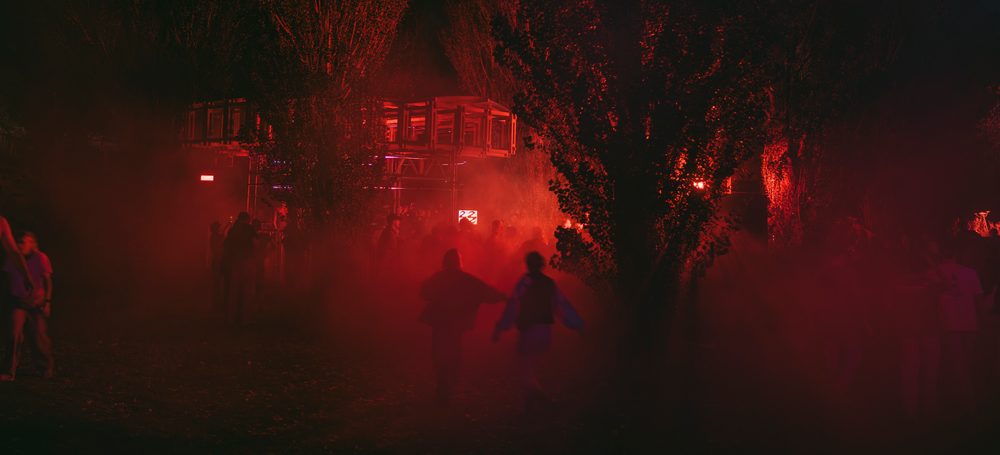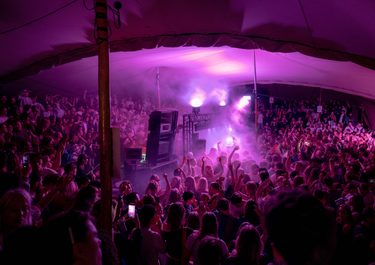
ADE Editorial: ZeeZout's independent route where sideways is always up
words by Meike Jentjens
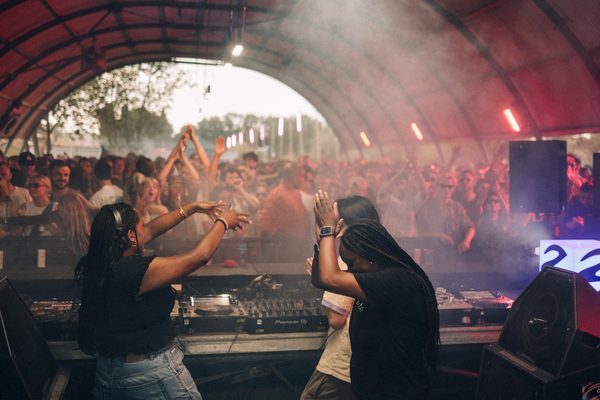
‘We never want to be headliner-dependent,’ says co-founder Stijn Ceelen. ‘Sometimes the bigger act plays earlier, and a local closes the night.’ It sounds almost casual when Ceelen speaks with a mix of calmness, unpretentiousness, and pride about how ZeeZout operates. But this is a choice with consequences. A room half-full at midnight, the risk of someone giving in to impatience right when the lesser-known name takes over. The financial risk is just as real; taking a less conventional route as like their ADE events at Rijk van de Keizer on ADE Saturday and ADE Sunday can mean smaller margins and more pressure on the team. Why do it then? Well, 'exactly the part that makes it so complicated to organize, makes it so good for both the artists and audience. You create moments that wouldn’t happen otherwise', says ZeeZout co-founder.
The theme word is trust. Not in their own words, because again, ZeeZout takes pride in being humble, so the present members of the team would never say so themselves. It's very clear though that trust is at the foundation of the independent promoter since its ignition in 2012. It's possibly also why risks have always seemed to pay off for the Amsterdam-based and Scheveningen-born events series, as the audience buys tickets knowing they might not recognize half the names but that the night will always deliver. In these days where everything is expensive and the dance floors get more and more and elitist hobby, that's not a given anymore – not like the state of the live scene found itself in after the boom of the reopening of dance floors after the pandemic.
Best thing in the world
Trust also shows in the fact artists come back year after year, moving from early slots to peak-time closers. Within ZeeZout’s team, that same trust flows internally: a sense that choices made from pure instinct (and instinct only!) will carry through, even when the spreadsheet says otherwise. As booker Christiaan Broedelet explains: ‘We almost always try to book artists at least three times. It’s not always possible, but it’s the best way to let them grow with us.’ According to Stijn Ceelen, who used to do the programming himself before Broedelet came into the picture: ‘We’re always evolving musically. It's all about surprising people, and giving them the best feeling in the world which is having discovered their new favorite artist. The same approach extends behind the scenes. ‘It’s a trickle-down effect from management,’ Broedelet adds. ‘I used to want control over everything, but I realized I like it more when we do it all together. The trust we get as a team gives me the confidence to take risks with programming, and that feeling eventually reaches the artists too.’
But trust doesn’t mean ZeeZout positions itself as the authority. Head of Production Rhea Ruben is quick to stress the difference: ‘I don’t like the word educate. It suggests you’re standing above the audience, and that’s not how we see it. But we do want to guide people into something new.’
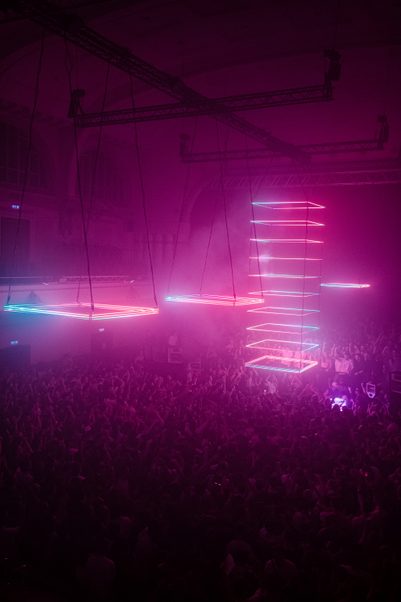
‘We never want to be headliner-dependent,’ says co-founder Stijn Ceelen. ‘Sometimes the bigger act plays earlier, and a local closes the night.’ It sounds almost casual when Ceelen speaks with a mix of calmness, unpretentiousness, and pride about how ZeeZout operates. But this is a choice with consequences. A room half-full at midnight, the risk of someone giving in to impatience right when the lesser-known name takes over. The financial risk is just as real; taking a less conventional route as like their ADE events at Rijk van de Keizer on ADE Saturday and ADE Sunday can mean smaller margins and more pressure on the team. Why do it then? Well, 'exactly the part that makes it so complicated to organize, makes it so good for both the artists and audience. You create moments that wouldn’t happen otherwise', says ZeeZout co-founder.
The theme word is trust. Not in their own words, because again, ZeeZout takes pride in being humble, so the present members of the team would never say so themselves. It's very clear though that trust is at the foundation of the independent promoter since its ignition in 2012. It's possibly also why risks have always seemed to pay off for the Amsterdam-based and Scheveningen-born events series, as the audience buys tickets knowing they might not recognize half the names but that the night will always deliver. In these days where everything is expensive and the dance floors get more and more and elitist hobby, that's not a given anymore – not like the state of the live scene found itself in after the boom of the reopening of dance floors after the pandemic.
Best thing in the world
Trust also shows in the fact artists come back year after year, moving from early slots to peak-time closers. Within ZeeZout’s team, that same trust flows internally: a sense that choices made from pure instinct (and instinct only!) will carry through, even when the spreadsheet says otherwise. As booker Christiaan Broedelet explains: ‘We almost always try to book artists at least three times. It’s not always possible, but it’s the best way to let them grow with us.’ According to Stijn Ceelen, who used to do the programming himself before Broedelet came into the picture: ‘We’re always evolving musically. It's all about surprising people, and giving them the best feeling in the world which is having discovered their new favorite artist. The same approach extends behind the scenes. ‘It’s a trickle-down effect from management,’ Broedelet adds. ‘I used to want control over everything, but I realized I like it more when we do it all together. The trust we get as a team gives me the confidence to take risks with programming, and that feeling eventually reaches the artists too.’
But trust doesn’t mean ZeeZout positions itself as the authority. Head of Production Rhea Ruben is quick to stress the difference: ‘I don’t like the word educate. It suggests you’re standing above the audience, and that’s not how we see it. But we do want to guide people into something new.’
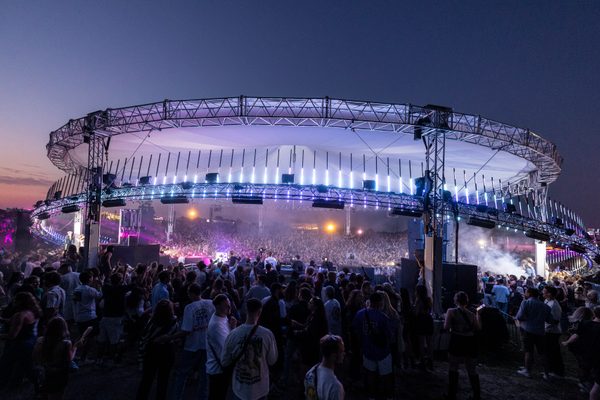
And on that critical, self-reflective note: although ZeeZout's approach sounds very wholesome, independence – like most good things in life – has a shadow side as well. Broedelet points out how easily bookings can get shaped by image rather than sound. ‘There’s this expectation now that DJs need to be performers, Instagram-ready, constantly visible. But some of the best artists are shy, almost invisible behind the decks. They don’t fit that mould, and that’s exactly why we book them.’ Animated, he goes on: ‘Joy Orbison always wore black clothes, wanting to be invisible. Now with TikTok and Instagram, a new generation of artists is expected to be social media savvy. It’s become performance.’ Rhea Ruben adds:'There are so many artists I think are amazing, but I’ve never booked them. You want to give them the right place, or ask them back. We only have a limited number of spots available, and since many are taken by ZeeZout regulars, which leaves fewer spaces for newcomers in the short run.'
And that's because they wait to offer someone the perfect spot. Otherwise, they just don't do it. TeamZeeZout would rather risk a slower sell-out than feed into the culture of pop-star DJs, hand-raising for the camera. It’s not a purist stance, more a practical one: if the programming doesn’t come from instinct, the whole night starts to ring hollow. But where do ticket sales come in then? How do you even make money so you don't have to sell the whole place, or stop doing what you like? That raises the question of growth. If not through bigger stages or larger crowds, then how? How can you even stay independent then? The answer, for ZeeZout, is to expand sideways rather than upwards: new collaborations with venues, different kinds of spaces, more emphasis on design and production. Growing in detail instead of in size.
Sideways is up, too
‘Our focus for the past years has been on finding more unique spaces that really fit us. We’ve been working with Paradigm in Groningen for a long time, we’ve done a very special event in De Vereeniging in Nijmegen last December and this ADE we're even doing a full day at Concertgebouw on Friday. A once in a lifetime moment’ says Ruben. ‘It’s not about adding more people, it’s about finding those special spaces that add something unique to a night. For us, growth is also in more than the programming itself: light design, stage design, the way the night unfolds. Sometimes the stage almost becomes a headliner.’
It leaves ZeeZout in a peculiar position within a scene that often equates independence with scale. Their version is quieter, riskier, and again, sometimes harder to explain. But as long as there are audiences willing to put their trust in instinct, and artists willing to return for the long game, ZeeZout’s sideways path might just be the most independent one there is.
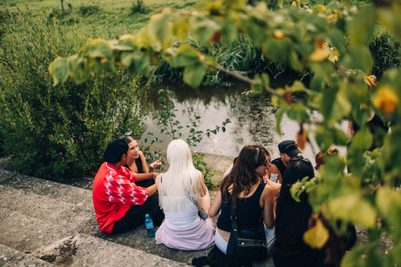
And on that critical, self-reflective note: although ZeeZout's approach sounds very wholesome, independence – like most good things in life – has a shadow side as well. Broedelet points out how easily bookings can get shaped by image rather than sound. ‘There’s this expectation now that DJs need to be performers, Instagram-ready, constantly visible. But some of the best artists are shy, almost invisible behind the decks. They don’t fit that mould, and that’s exactly why we book them.’ Animated, he goes on: ‘Joy Orbison always wore black clothes, wanting to be invisible. Now with TikTok and Instagram, a new generation of artists is expected to be social media savvy. It’s become performance.’ Rhea Ruben adds:'There are so many artists I think are amazing, but I’ve never booked them. You want to give them the right place, or ask them back. We only have a limited number of spots available, and since many are taken by ZeeZout regulars, which leaves fewer spaces for newcomers in the short run.'
And that's because they wait to offer someone the perfect spot. Otherwise, they just don't do it. TeamZeeZout would rather risk a slower sell-out than feed into the culture of pop-star DJs, hand-raising for the camera. It’s not a purist stance, more a practical one: if the programming doesn’t come from instinct, the whole night starts to ring hollow. But where do ticket sales come in then? How do you even make money so you don't have to sell the whole place, or stop doing what you like? That raises the question of growth. If not through bigger stages or larger crowds, then how? How can you even stay independent then? The answer, for ZeeZout, is to expand sideways rather than upwards: new collaborations with venues, different kinds of spaces, more emphasis on design and production. Growing in detail instead of in size.
Sideways is up, too
‘Our focus for the past years has been on finding more unique spaces that really fit us. We’ve been working with Paradigm in Groningen for a long time, we’ve done a very special event in De Vereeniging in Nijmegen last December and this ADE we're even doing a full day at Concertgebouw on Friday. A once in a lifetime moment’ says Ruben. ‘It’s not about adding more people, it’s about finding those special spaces that add something unique to a night. For us, growth is also in more than the programming itself: light design, stage design, the way the night unfolds. Sometimes the stage almost becomes a headliner.’
It leaves ZeeZout in a peculiar position within a scene that often equates independence with scale. Their version is quieter, riskier, and again, sometimes harder to explain. But as long as there are audiences willing to put their trust in instinct, and artists willing to return for the long game, ZeeZout’s sideways path might just be the most independent one there is.
